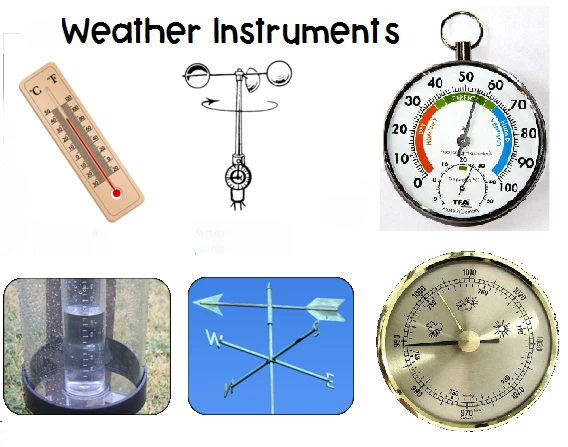
# Weather Gauges and Instruments for Accurate Meteorological Measurements
Accurate weather measurement is essential for meteorology, agriculture, aviation, and even daily planning. To achieve precise readings, various weather gauges and instruments are used to monitor atmospheric conditions. These tools help scientists and weather enthusiasts track temperature, humidity, wind speed, precipitation, and more.
## Essential Weather Gauges and Instruments
### 1. Thermometer
A thermometer measures air temperature. Modern digital thermometers provide quick and accurate readings, while traditional mercury or alcohol thermometers are still widely used in some applications.
### 2. Barometer
A barometer measures atmospheric pressure, which is crucial for predicting weather changes. A sudden drop in pressure often indicates an approaching storm.
### 3. Hygrometer
Hygrometers measure humidity levels in the air. They are essential for understanding comfort levels, predicting fog, and monitoring conditions in greenhouses or storage facilities.
### 4. Anemometer
Anemometers gauge wind speed and direction. Cup anemometers and vane anemometers are common types used in weather stations.
### 5. Rain Gauge
Rain gauges collect and measure precipitation over a set period. They come in various designs, including standard cylindrical gauges and tipping bucket models for automated readings.
### 6. Pyranometer
A pyranometer measures solar radiation. This instrument is vital for studying climate patterns and optimizing solar energy systems.
## Advanced Weather Monitoring Systems
For comprehensive meteorological data, professional weather stations combine multiple instruments into a single system. These stations often include:
– Wireless sensors for real-time data transmission
– Data loggers for recording measurements over time
– Software integration for analysis and forecasting
## Choosing the Right Weather Instruments
When selecting weather gauges and instruments, consider:
– Accuracy requirements
– Durability in outdoor conditions
– Ease of calibration and maintenance
– Compatibility with existing systems
By using the right combination of weather gauges and instruments, meteorologists and weather enthusiasts can gather reliable data for analysis and prediction. Whether for professional use or personal interest, these tools play a vital role in understanding our ever-changing atmosphere.
Keyword: weather gauges instruments